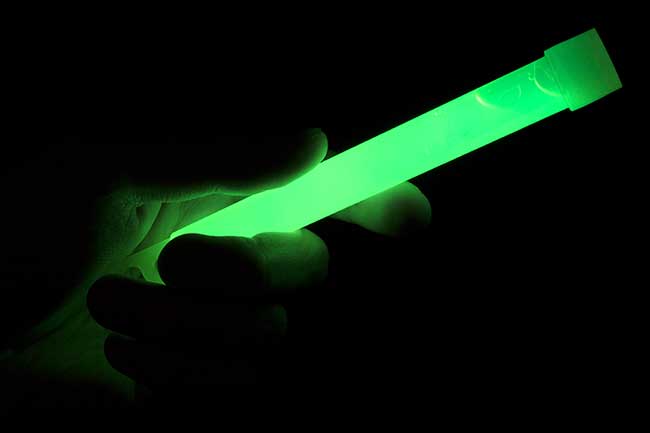How To Make Emergency Glow Sticks

In times of emergency, having a reliable source of light can be critical. Whether you’re dealing with a power outage, hiking in the wilderness, or need to signal for help, glow sticks can be an essential tool.
They’re lightweight, easy to store, and provide a dependable source of illumination without the need for batteries or electricity. But what if you don’t have any on hand? Fortunately, with a few household ingredients, you can make your own emergency glow sticks. Here’s why you might need them and how you can create them yourself.
Why You Need Emergency Glow Sticks
- Power Outages: During natural disasters or unexpected power failures, glow sticks offer a hands-free light source that can last for several hours. They can light up a room, provide visibility for moving around safely, or even help you find your way in total darkness.
- Outdoor Adventures: When camping, hiking, or exploring the great outdoors, glow sticks are an excellent addition to your gear. They can help you navigate trails, set up camp in the dark, or signal for help if needed.
- Emergency Signaling: In case of an accident or if you get lost, glow sticks can be used to signal your location to rescuers. Their bright, consistent light is visible from a distance, making them a valuable tool for staying safe in an emergency.
- Safe Alternative: Unlike candles or flashlights, glow sticks do not pose a fire hazard, making them safe to use in environments where open flames or sparks could be dangerous, such as near gas leaks or in forests during dry conditions.
View this post on Instagram
How to Make Emergency Glow Sticks
Creating your own emergency glow sticks is a simple process that involves basic chemistry. While commercial glow sticks rely on a chemical reaction to produce light, you can achieve a similar effect using a few accessible ingredients. Here’s how:
Materials You’ll Need:
- Hydrogen Peroxide: This is the main ingredient that will create the glowing effect.
- Luminol: A chemical compound that emits light when it reacts with hydrogen peroxide. You can purchase luminol online or from a specialty chemical supplier.
- Sodium Carbonate (Washing Soda): This acts as a catalyst to speed up the reaction.
- Distilled Water: Used to dissolve the chemicals.
- Fluorescent Dye (optional): To add color to your glow stick. Fluorescent highlighter ink can work as a substitute.
- Plastic Tubes or Bottles: To contain the chemical reaction. Clear plastic is best for visibility.
Step-by-Step Instructions:
- Prepare the Solution:
- In a plastic container, mix 3% hydrogen peroxide with distilled water in a 1:1 ratio. For example, use 50ml of hydrogen peroxide and 50ml of distilled water.
- If you’re adding color, carefully open a highlighter pen and remove the ink-soaked felt. Squeeze the dye into the solution or let it soak until the desired color is achieved.
- Add Luminol:
- In a separate container, dissolve a small amount (about 0.1g) of luminol powder in a few milliliters of distilled water.
- Mix this solution into the hydrogen peroxide and water mixture.
- Add Sodium Carbonate:
- Add a small amount (about 0.5g) of sodium carbonate to the solution. This will act as a catalyst to trigger the light-producing reaction.
- Stir the solution gently to ensure all the ingredients are mixed well.
- Transfer to the Container:
- Carefully pour the mixture into a clear plastic tube or bottle, sealing it tightly. You can use small plastic test tubes, old glow stick containers, or even plastic bottles with caps.
- Activate the Glow Stick:
- When you need to use the glow stick, simply shake the container vigorously to mix the chemicals. The solution will start to glow, providing you with a bright, steady light.
View this post on Instagram
Safety Precautions
While making homemade glow sticks is relatively safe, it’s essential to handle all chemicals with care:
- Wear gloves and safety goggles to protect your skin and eyes from potential irritation.
- Work in a well-ventilated area to avoid inhaling any fumes.
- Store the chemicals and the finished glow sticks out of reach of children and pets.
Conclusion
Homemade emergency glow sticks can be a fun and educational project while providing a practical solution during emergencies. By understanding the chemistry behind them and following these simple steps, you can create a reliable source of light whenever you need it. Whether you’re preparing for an emergency or planning your next outdoor adventure, having a few homemade glow sticks on hand can offer peace of mind and safety in the dark.